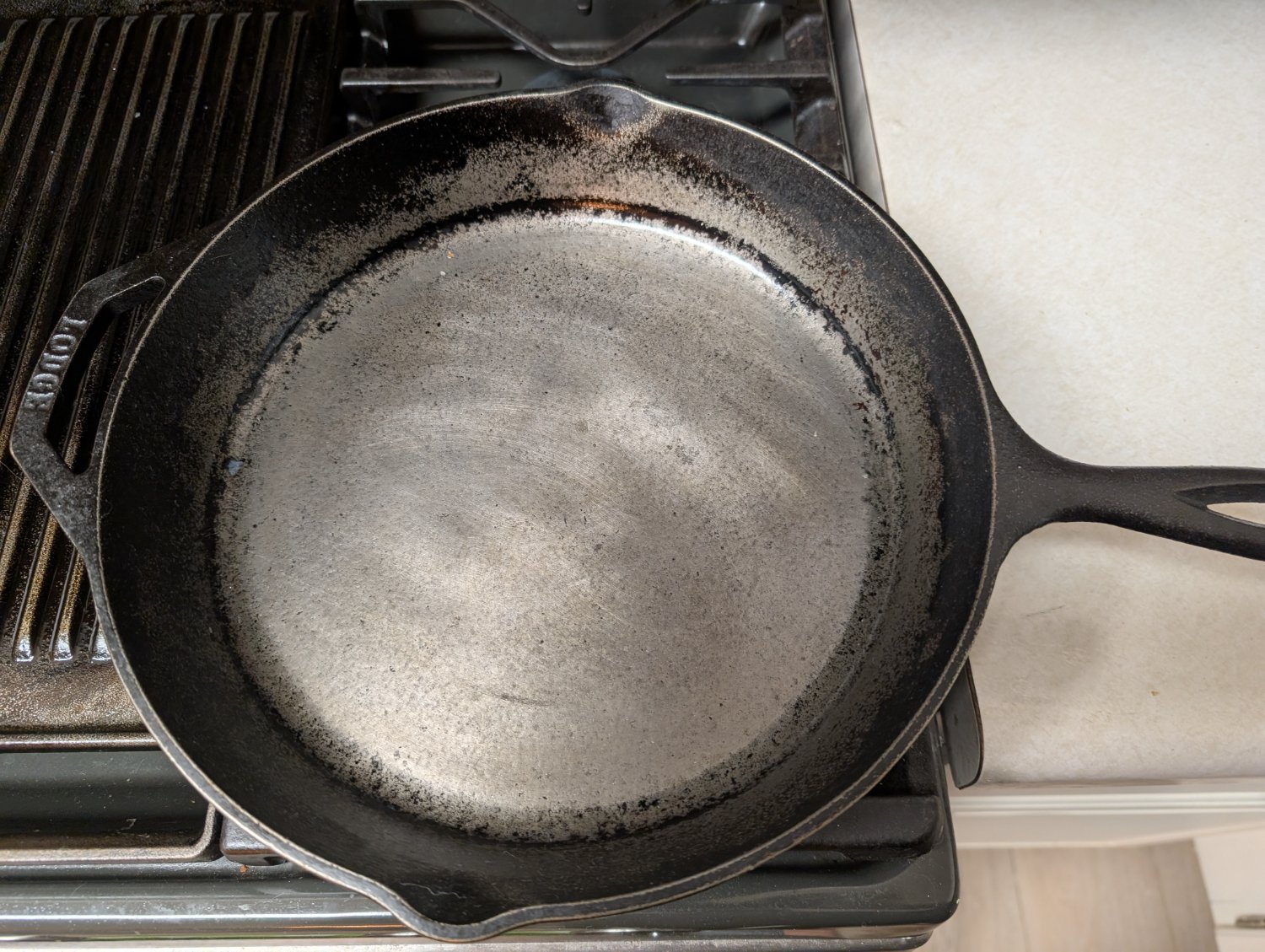this post was submitted on 21 Nov 2024
66 points (94.6% liked)
Cast Iron
2148 readers
3 users here now
A community for cast iron cookware. Recipes, care, restoration, identification, etc.
Rules: Be helpful when you can, be respectful always, and keep cooking bacon.
More rules may come as the community grows, but for now, I'll remove spam or anything obviously mean-spirited, and leave it at that.
Related Communities: [email protected] [email protected] [email protected]
founded 2 years ago
MODERATORS
you are viewing a single comment's thread
view the rest of the comments
view the rest of the comments

There's no reason to sand it down. It just makes the pan worse.
Nah the nice machine finished cast irons with the smoother finish are soooooo much better, take longer to get a good seasoning on them but when seasoned are fantastic
How does seasoning stick on a smooth surface?
Strictly speaking it's still porous at the microscopic level
Same as it does on a rough surface.
You get the oils polymerizing, which is going to stick to pretty much anything, no matter how smooth it looks. The surface isn't microscopically smooth, there's still roughness.
However, it wouldn't matter if it was perfectly smooth. The bonding between the iron and the oils isn't purely mechanical. It bonds on a molecular level, meaning that the little bits on the atoms of the polymerized oil make sweet, slippery love to the little bits on the atoms of the pan.
A smoother surface is actually better. You don't have as irregular a surface on the polymer, and there's less gaps where they contact the metal. Which, ideally, you'll be applying very thin coats and prevent gaps, but it's never a perfect process.
Sanding down a pan before seasoning improves the bond, improves the cooking surface, and makes it easier to season.
You ever use a stainless steel pan of some kind and have oil get solid-ish on it? It leaves that layer of brownish, maybe amber stuff that's slick and hard to scrape off. It's the same thing. You can polish stainless still to a mirror finish and that will still happen, and it'll still be difficult to remove.
When it comes to that, a rough surface is more likely to chip, flake, or otherwise fail.
Your best seasoned pan is going to be sanded smooth, then seasoned with food grade flax oil (though it is by no means the only option, it's the best drying oil that's food grade). You'll cycle it three to five times, depending on your freedom to do so. Then you'll have very low stick, heat resistant surface.
Now, nothing is perfect. If you can't get flaxseed, stuff like canola that's semi hardening will work almost as well (most of the time, you can't tell the difference until or unless you abuse the hell out of the pan). If you can't get that, any oil that's safe to eat will get the job done to some degree, so long as it's heat reactive at oven temps. Which, if you can't get flaxseed, the chances of being able to source anything that unusual isn't likely to begin with.
Same way it sticks on every carbon steel pan which are all smooth.
I'm well aware that it doesn't necessarily improve anything, which is why I've never sanded my Lodge pan down. However, I also don't see how it would make the pan worse, which is why I'm asking how it impacts the ability for seasoning to adhere, the only thing this could possibly do to make the pan worse. I use a 1950s Wagner for my cast iron cooking now, and I much prefer its polished surface to that of a stock Lodge. I've done plenty of my own Googling to find anecdotal experience with sanding down the surfaces and did not find definitive answers on sanding, so if you have any sources on it being strictly worse or personal experience I'd be happy to learn more.
I’ve been cooking with cast iron for decades, first with rough lodge pans then for the last 15 years after sanding them smooth. IMO smooth cast iron is far away the better cooking experience. Trying to get stuck bits out of the rough surface is a nightmare. With a smooth surface and a nice metal spatula (Dexter is the brand I use) nothing ever sticks and the seasoning sticks perfectly well. I’d just recommend getting carbon steel pans to anybody that doesn’t have smooth cast iron yet, as they’re much lighter and perfectly smooth out of the box.
Agreed. A few weeks ago I spent the time to sand smooth 3 of my lodges and they are way more nonstick after 3-4 uses than they were before and way easier to clean. I just used 80 grit on a dynafile, took about 15 minutes to sand them smooth (wear a mask). Then 2-3 runs through the oven to re season and they were good to go.
I used a random orbital sander and it took a pretty long time to get it as smooth as I wanted. Still worth it for a pan that will last forever!